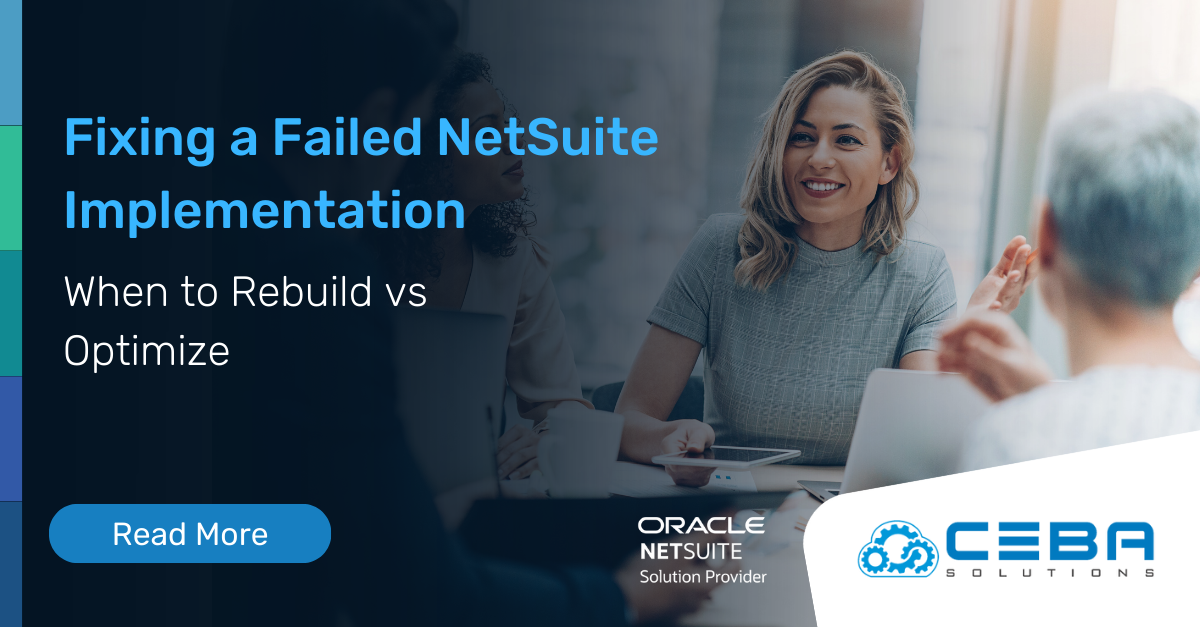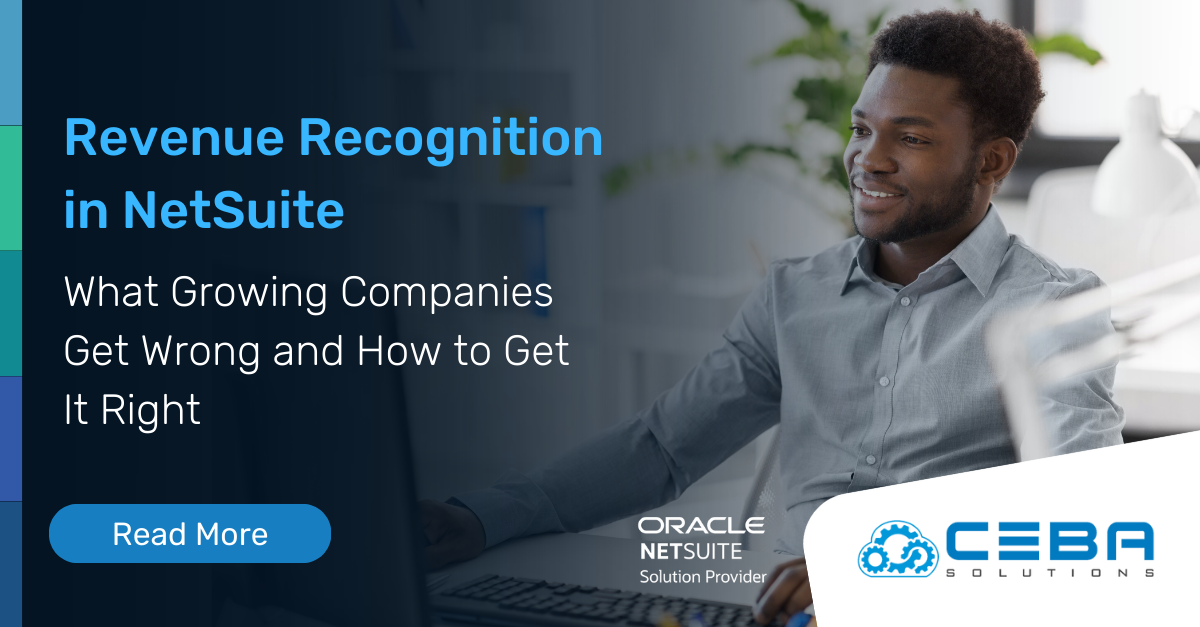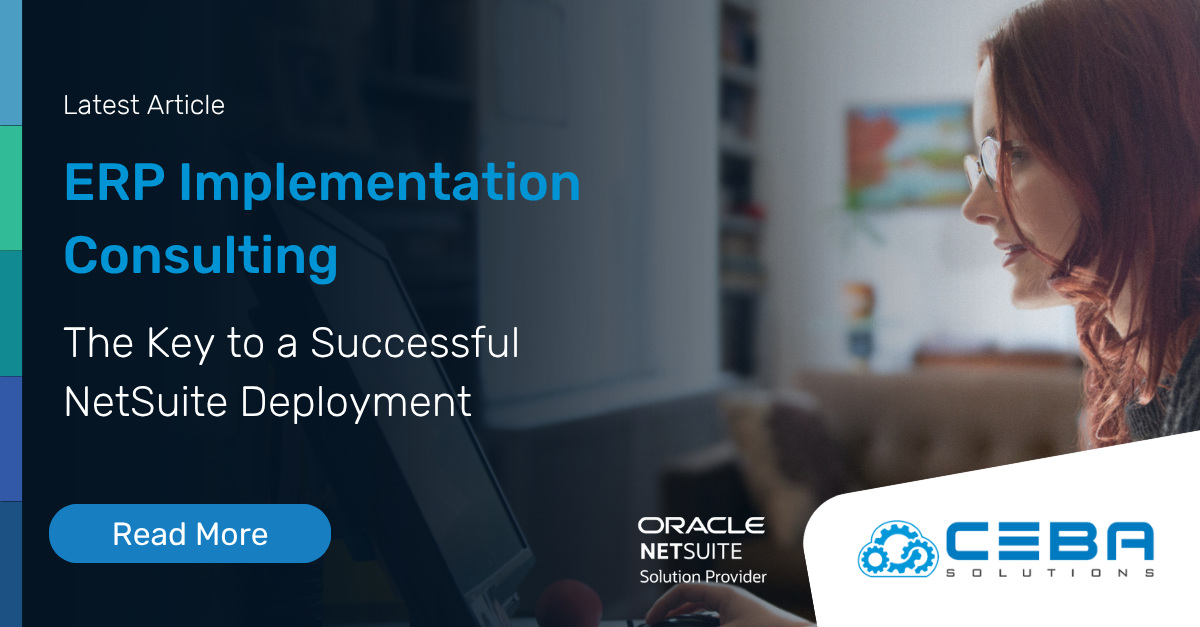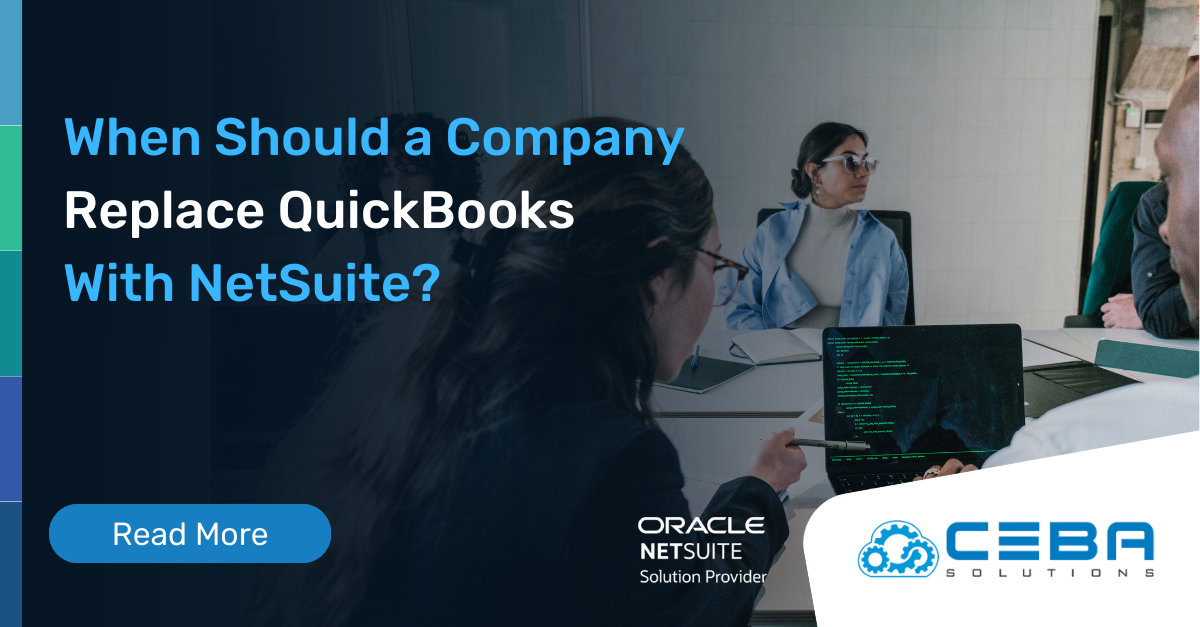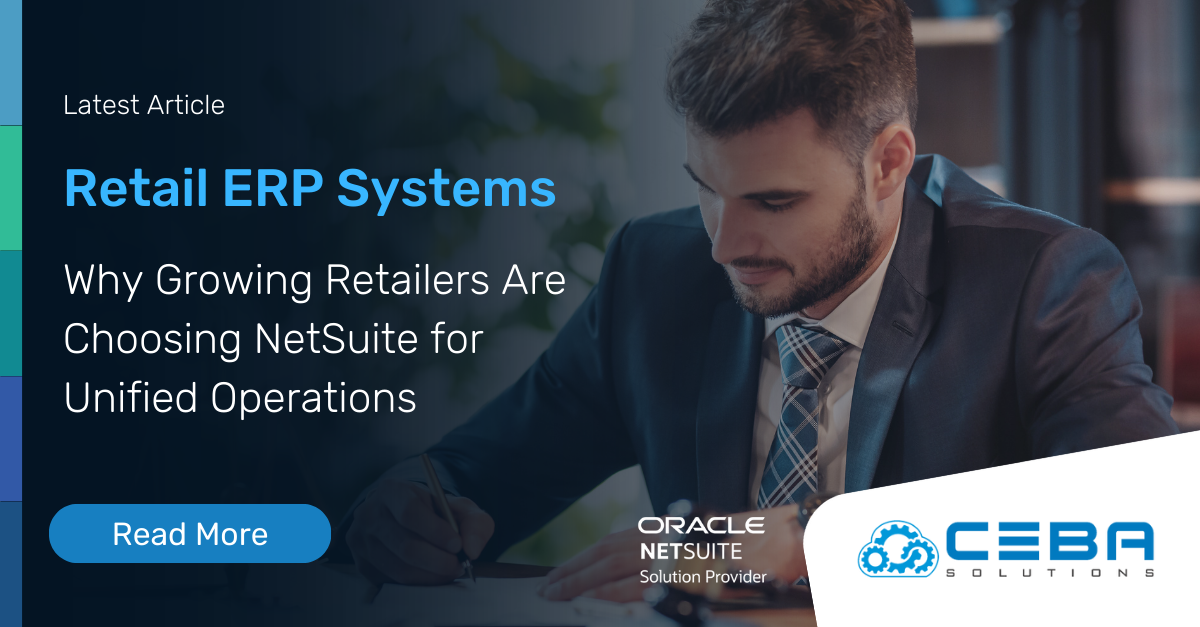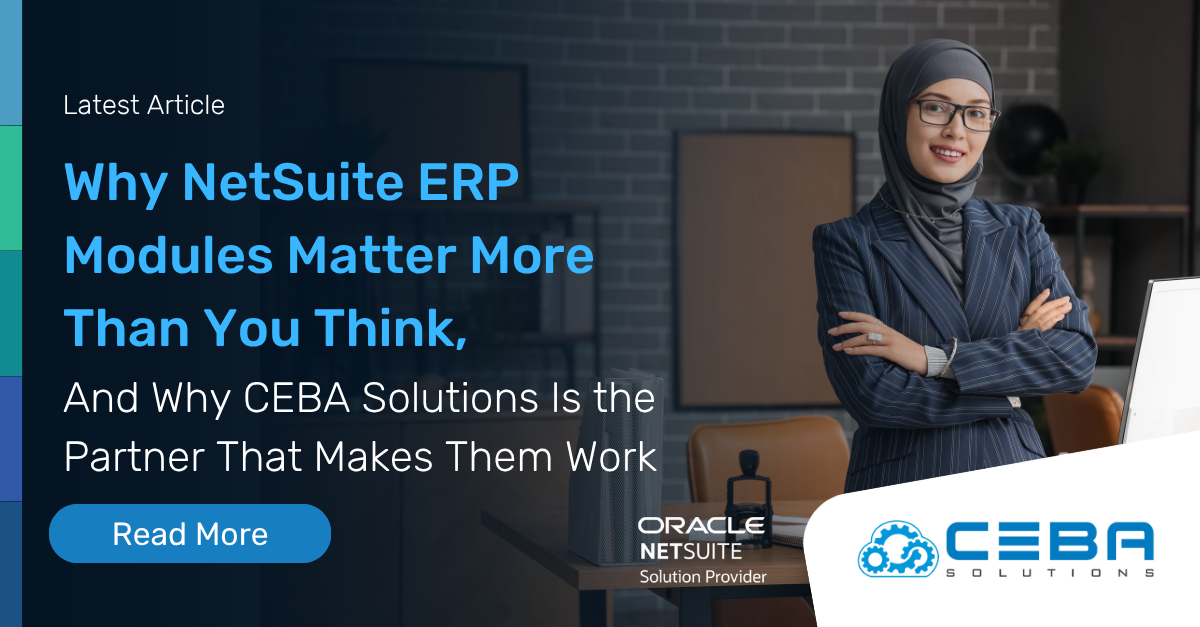
Scaling Small Businesses with Effective ERP Strategies
Scaling Small Businesses with Effective ERP Strategies
As a small business owner, taking a business to the next level is tough. With so many business owners getting stuck working ‘in the business’, not' ‘on the business’, most don’t make it to the stage where scaling becomes an opportunity, if they make it at all. However, for a small percentage of businesses, a unique combination of Demand, Financial Resources, Business Acumen and Market Opportunity create the perfect storm where rapid scaling becomes a possibility.
For these businesses, having the right systems in place to prepare for the added complexities of running a larger organization is imperative. In most cases, over the course of the businesses lifecycle multiple systems, apps and spreadsheets have been purchased or created to manage new challenges that arise as time goes by. Whilst integrating these systems is possible, for companies looking to grow, and grow fast, having a single system, with everything on one platform removes the obstacles of working out how systems and integrations will need to be upgraded or managed and where the functionality of that application no longer serves the needs of the business and its users and customers. It is at this point, that a small business should consider a modern Business Management Platform like NetSuite, and invest in implementing to future proof their IT strategy.
Key Benefits of ERP When Your Business Is In Expansion Mode
One System Eliminates IT Complexity
An ERP system acts as a central repository for your business’s diverse information streams. It consolidates data from various departments, ensuring both accuracy and accessibility. This centralization is pivotal for cohesive operations across different business units.
Inbuilt Analytics
An ERP brings sophisticated reporting tools to the table. These tools enable data-driven decision-making, allowing you to make well-informed choices based on comprehensive data analysis. It's a critical component for strategic planning and performance assessment.
Transparency of Operational and Financial Performance
In periods of rapid growth, the ability to closely monitor your business's performance becomes even more vital. ERP systems provide real-time dashboards, which offer an up-to-the-second snapshot of both operational and financial metrics. This transparency is crucial for identifying and addressing issues promptly, especially when stakes are high.
Creating Processes and Ensuring Procedures are Followed
Systems like NetSuite come equipped with workflow and automation features. These features allow for the replication of best practices and processes within the system, guiding new team members in adhering to established procedures. This is particularly essential in sensitive areas such as Accounts Payable and Procurement, where precision and compliance are paramount.
Simplified IT Structures Minimize Integration Costs and Maintenance Requirements
Juggling multiple systems from various vendors often leads to compatibility and maintenance challenges. An ERP system simplifies the IT infrastructure by unifying diverse applications. This consolidation reduces the likelihood of integration issues and lowers ongoing maintenance expenses.
Navigating business growth demands strategic clarity. For the select few enterprises positioned for rapid expansion, an amalgamation of demand, financial prowess, acumen, and market opportunity creates the ideal conditions. To seamlessly navigate complexities, a unified Business Management Platform like NetSuite proves indispensable. - Zabe Siddique, CEO - CEBA Solutions
Essential Components of ERP for Small Businesses
Financial Management
ERP systems offer comprehensive tools for financial management, including budgeting, forecasting, and managing cash flows. This allows for more accurate financial planning and better control over the financial health of the business.
Budgeting and Forecasting
ERP aids in predicting financial trends and preparing budgets, helping businesses plan for future expenses and revenues. It allows for scenario planning and helps in adjusting budgets in response to market changes. The system also provides historical data, which is crucial for accurate forecasting.
Cash Flow Management
These systems offer real-time tracking of cash inflows and outflows, crucial for maintaining a healthy balance. They help in identifying potential cash shortages or surpluses and allow for proactive management. ERP systems also assist in optimizing payment terms and scheduling to improve cash flow.
Financial Reporting and Compliance
ERP ensures compliance with accounting standards and regulations. It automates financial reporting, reducing manual errors and saving time. The system can also adapt to various regulatory requirements, making it easier to comply with different regional financial laws.
Supply Chain Management
With ERP, businesses can optimize their supply chain operations. This involves managing inventory levels and streamlining procurement processes, ensuring that the right products are available at the right time without overstocking or understocking.
Vendor Management
ERP streamlines vendor selection, procurement processes, and contract management. It provides a centralized database for vendor information, enhancing communication and negotiations. The system also tracks vendor performance, aiding in strategic decision-making.
Order Processing and Fulfillment
It manages the entire order lifecycle from placement to delivery, ensuring accuracy and customer satisfaction. ERP systems optimize order processing by automating tasks and reducing manual intervention. They also provide real-time visibility into order status, which enhances customer communication.
Inventory Optimization
ERP systems analyze sales patterns to maintain optimal inventory levels. They help in reducing carrying costs and preventing stock outs or overstock situations. The system also supports demand forecasting, which is essential for inventory planning.
Inventory and Warehouse Management
ERP systems help in streamlining warehouse operations and distribution processes. This can lead to more efficient handling of inventory, from storage to shipment, and can significantly reduce errors and save time.
Stock Management
These systems track stock levels, manage reordering processes, and prevent inventory discrepancies. ERP helps in categorizing inventory for efficient management and provides insights into stock usage patterns. The system also integrates with point-of-sale systems for real-time inventory updates.
Warehouse Operations
ERP optimizes warehouse space utilization and streamlines picking, packing, and shipping processes. It supports barcode scanning and RFID technologies for accurate tracking. The system also assists in labor management within the warehouse.
Logistics and Distribution
The system plans and monitors shipping routes and schedules for efficient distribution. ERP integrates with carriers for real-time tracking of shipments. It also helps in managing transportation costs and optimizing delivery times.
Manufacturing Resource Planning
For businesses involved in manufacturing, ERP provides tools to manage shop floor activities and monitor manufacturing performance. This includes scheduling, production planning, and tracking the manufacturing process, ensuring efficiency and productivity in production lines.
Production Scheduling
ERP systems facilitate efficient scheduling of manufacturing jobs, maximizing resource utilization. They help in balancing workloads and predicting potential bottlenecks. The system also integrates with shop floor machinery for real-time production tracking.
Quality Control
The systems ensure adherence to quality standards and compliance with regulations. ERP supports defect tracking and initiates corrective actions. It also collects quality data for continuous improvement processes.
Maintenance Management
It schedules regular maintenance to prevent equipment failures and unplanned downtime. ERP tracks maintenance history and costs, aiding in lifecycle management of machinery. The system also alerts managers about upcoming maintenance needs.
Customer Relationship Management (CRM)
Integration of CRM in ERP systems helps manage sales processes and enhances customer satisfaction. This includes tracking customer interactions, managing sales pipelines, and providing better customer service.
Sales Management
ERP integrates CRM to manage customer interactions and sales pipelines. It helps in tracking leads, managing sales opportunities, and converting prospects into customers. The system also provides sales forecasts, aiding in strategic planning.
Customer Service
ERP improves customer service by providing a complete view of customer interactions. It helps in resolving issues quickly and efficiently. The system also tracks customer feedback and service trends for continuous improvement.
Marketing Automation
ERP supports targeted marketing campaigns based on customer data analysis. It helps in tracking marketing ROI and adjusting strategies accordingly. The system also integrates with email and social media for comprehensive campaign management.
Human Resources Management
ERP supports various HR functions, including payroll management, recruitment, and employee record-keeping. This centralizes HR data, making it easier to manage employee information and comply with labor laws and regulations.
Payroll and Benefits Administration
ERP simplifies payroll processing and manages employee benefits. It ensures compliance with tax laws and regulations. The system also supports direct deposit, pay slip generation, and year-end reporting.
Recruitment and Onboarding
It streamlines the recruitment process from job posting to candidate tracking. ERP enhances the onboarding experience by automating administrative tasks. The system also helps in maintaining a talent pool for future hiring needs.
Performance Management
ERP facilitates setting and tracking employee goals and performance reviews. It helps in identifying training needs and planning career development paths. The system also supports succession planning and talent management.
Analytics and Reporting
One of the most significant advantages of ERP systems is the ability to provide insights into business performance through analytics and reporting. This enables businesses to make strategic decisions based on real-time data and trends observed across various departments.
Business Intelligence
ERP provides actionable insights through data analysis and visualization tools. It helps in identifying trends and making data-driven decisions. The system also supports custom dashboard creation for various business functions.
Performance Metrics
It tracks key performance indicators to assess business efficiency. ERP helps in benchmarking performance against industry standards. The system also supports continuous monitoring and reporting of business health.
Custom Reporting
ERP allows for the creation of tailored reports to meet specific business needs. It supports data aggregation from various sources for comprehensive analysis. The system also enables secure sharing of reports with stakeholders
Efficient ERP components empower small businesses: from precise financial management, streamlined supply chains, and optimized manufacturing to enhanced customer relationships and insightful analytics. Elevate your business with integrated solutions. - Zabe Siddique, CEO - CEBA Solutions
ERP Implementation Advice for Small Business
Over the last 10 years, the team at CEBA Solutions have been helping many small businesses make the leap to ERP. During this time, we have identified some critical factors that contribute to the success of an ERP roll out:
Planning and Strategy Development
Effectively documenting your current situation, near-term goals, and long-term objectives is crucial. It's essential to understand what your business needs now to support growth, what should be prioritized after the ERP system goes live, and what will be necessary in the future to ensure the chosen system can handle increased demands.
Data Migration and System Integration
Managing data migration and system integration is vital for success. However, in many cases, migrating data just for the sake of it may not be the best use of your implementation budget. Consider retaining a single license or a remote database for non-mission-critical items, such as historical invoice data or customer payment methods. This approach can be cost-effective and practical.
Training and Change Management
People often resist change, especially when it involves altering the systems they use. To overcome this resistance, it's important to have a well-thought-out training and change management plan in place. This plan should facilitate quick and easy learning for users while also clearly communicating how the new system will benefit individual roles and the overall business in the long term.
Is Your Business Gearing for Growth?
As a small business owner, the path to growth can be challenging. While not every business gets the opportunity to scale rapidly, for those that do, effective strategies become essential. Implementing an ERP system, such as NetSuite, can be a practical step to future-proof your IT strategy.
ERP systems offer real benefits during expansion, simplifying IT operations, providing analytics, offering transparency, and enhancing processes. These advantages can contribute to efficient growth.
Contact CEBA Solutions today to explore how NetSuite, a powerful ERP solution, can streamline your business operations, enhance efficiency, and drive growth. Our team of experts is here to guide you through the implementation process and ensure you get the most out of this cutting-edge technology.




